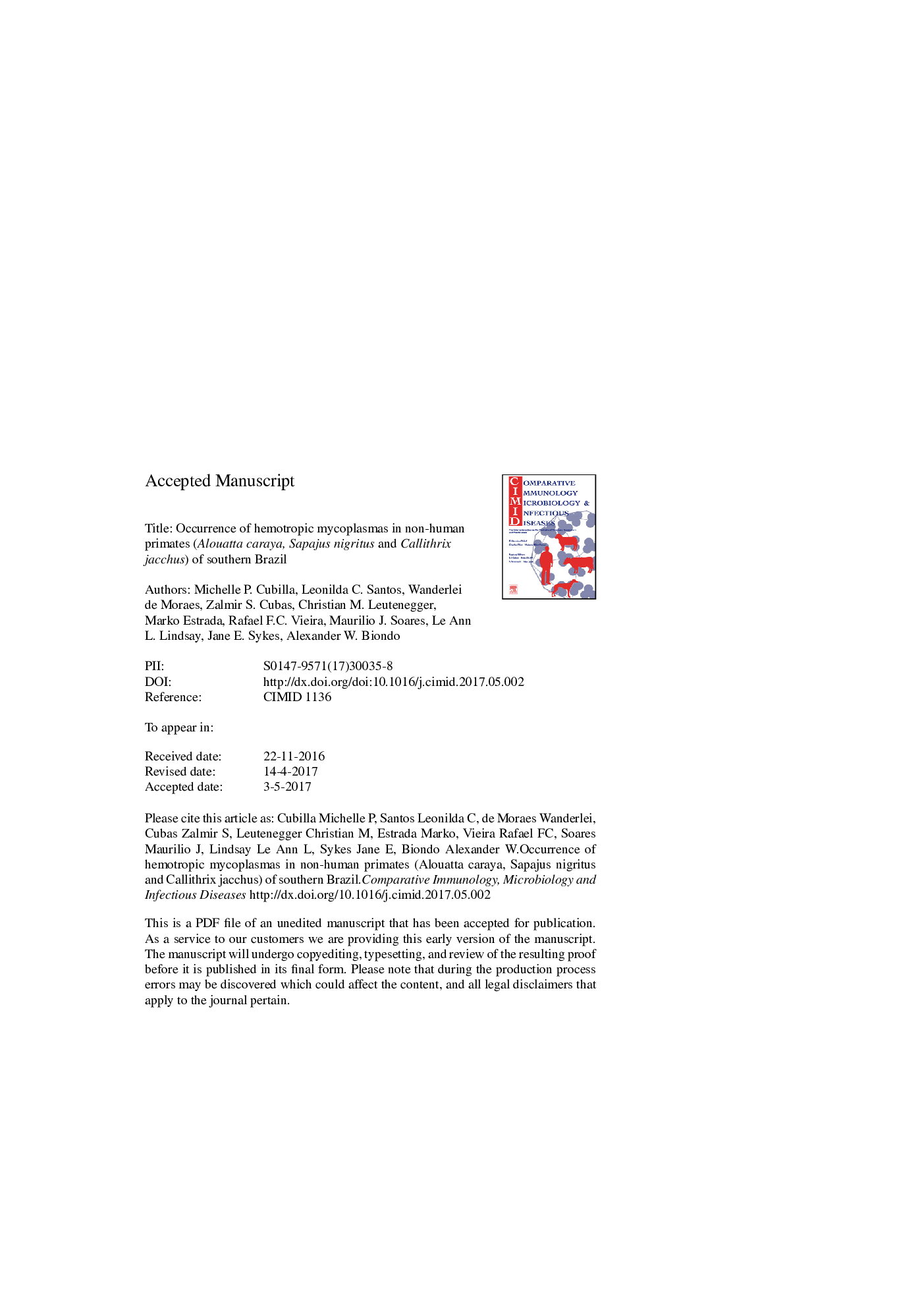| Article ID | Journal | Published Year | Pages | File Type |
|---|---|---|---|---|
| 5539899 | Comparative Immunology, Microbiology and Infectious Diseases | 2017 | 29 Pages |
Abstract
Hemoplasmas, the erythrocyte-associated mycoplasmas, have been detected in several primates, causing mostly subclinical infection. This study aimed to determine the prevalence of hemoplasma infection in captive and free-ranging monkeys from southern Brazil, as well as factors and hematological abnormalities associated with infection. Blood samples from 40 non-human primates (NHP) were tested for hemoplasmas and coinfections. An overall of 10/40 (25.0%) NHP tested positive for hemoplasmas using PCR-based assays, including 9/14 (64.3%) black howler monkeys (Alouatta caraya) and 1/24 (4.2%) black-horned capuchin (Sapajus nigritus). Infection was not statistically associated with anemia, but wild-born monkeys and male black howler monkeys were more likely to be positive when compared with captive-born animals and female black howler monkeys, respectively. The sequences from the black howler monkey hemoplasma were similar (94% identity) to the squirrel monkey hemoplasma (“Candidatus Mycoplasma kahanei”) and were phylogenetically located in a different cluster when compared to the human hemoplasma (“Candidatus Mycoplasma haemohominis”).
Keywords
Related Topics
Life Sciences
Agricultural and Biological Sciences
Animal Science and Zoology
Authors
Michelle P. Cubilla, Leonilda C. Santos, Wanderlei de Moraes, Zalmir S. Cubas, Christian M. Leutenegger, Marko Estrada, Rafael F.C. Vieira, Maurilio J. Soares, LeAnn L. Lindsay, Jane E. Sykes, Alexander W. Biondo,
